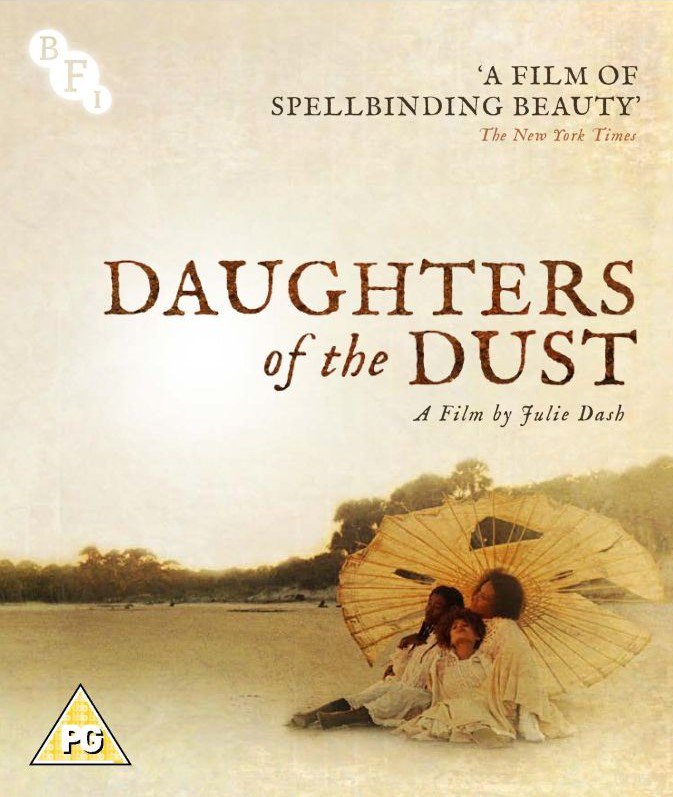BFI GREATEST FILMS OF ALL TIME #60 (WORLDWIDE CRITICS POLL)
DAUGHTERS OF THE DUST - 1991 (Director: Julie Dash)
The film that inspired Beyonce's visual album LemonadeJULIE DASH : 1991 : USA :
-
Sun 9 July 2023 // 19:30
/ Cinema
Tickets: PAY AS YOU CAN PRICES - £7/£5/£3/£0
Dash’s visionary visual marriage between Afrocentric aesthetics and the rich emotional depth of Black womanhood is a cinematic triumph.
Number 60 in the BFI greatest films of all time and part inspiration for Beyonce's Lemonade:
DAUGHTERS OF THE DUST (Julie Dash, 1991)
'A film of spellbinding beauty." The New York Times.
***************
The ascension of Julie Dash’s Daughters of the Dust to recognition as one of the greatest films of all time hardly comes as a surprise to Black women moviegoers, who championed the film from its earliest screenings and fiercely defended it against wilful misunderstandings in the decades that followed. Black women, in whose image the 1991 feature was directly created, saw then what is now widely understood: Dash’s visionary visual marriage between Afrocentric aesthetics and the rich emotional depth of Black womanhood is a cinematic triumph.
As a sequel to Julie Dash’s Daughters of the Dust was never made, we never knew what became of the Peazant girls after they crossed over to the mainland from the Sea Islands of South Carolina. That is, until Beyoncé’s visual album Lemonade dropped in 2016 and seemed to pick up the story of its gorgeously garbed Black women as they struggled to find their way in the New World. Thanks to Lemonade’s distinct homage, Dash’s pioneering movie was rediscovered by a new generation and has now been restored and rereleased.
There is something wonderfully apposite about this binding together of eras, given that Daughters of the Dust is itself a contemplation of time’s circularity. The overlaying of past, present and future is the framing device for the film, which offers a rare insight into African women’s spirituality shared across lineages and throughout the diaspora. At a moment when third-wave feminism meets pop culture meets a refreshed Black identity politics, Daughters of the Dust remains a futuristic glimpse into the past.
Daughters of the Dust took more than ten years to make. Thirty years on, the film still feels remarkable. Its rich cinematic language breaks open formal storytelling, allowing a distinct, possibly ancient, voice to emerge that changes the possibilities of cinema for Black female filmmakers and viewers.

